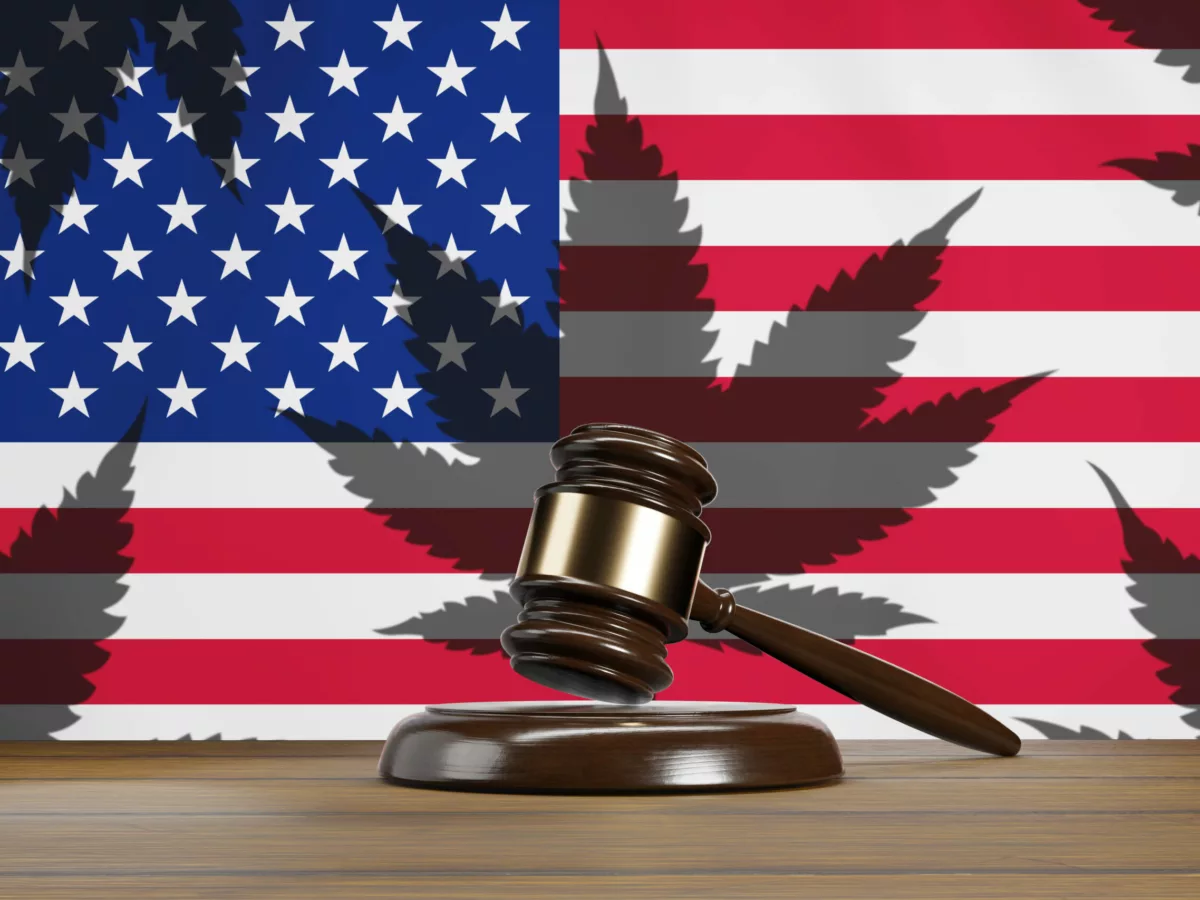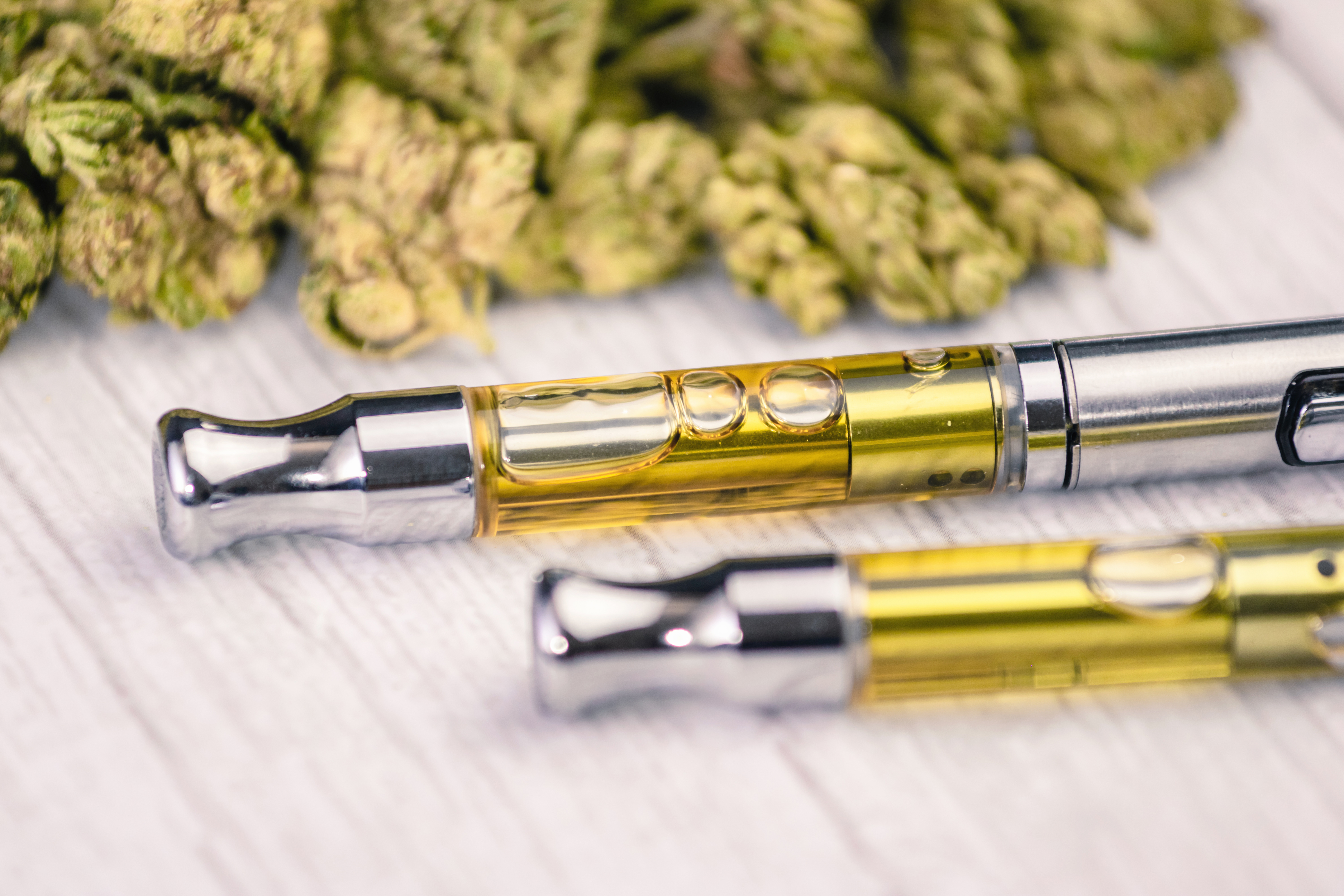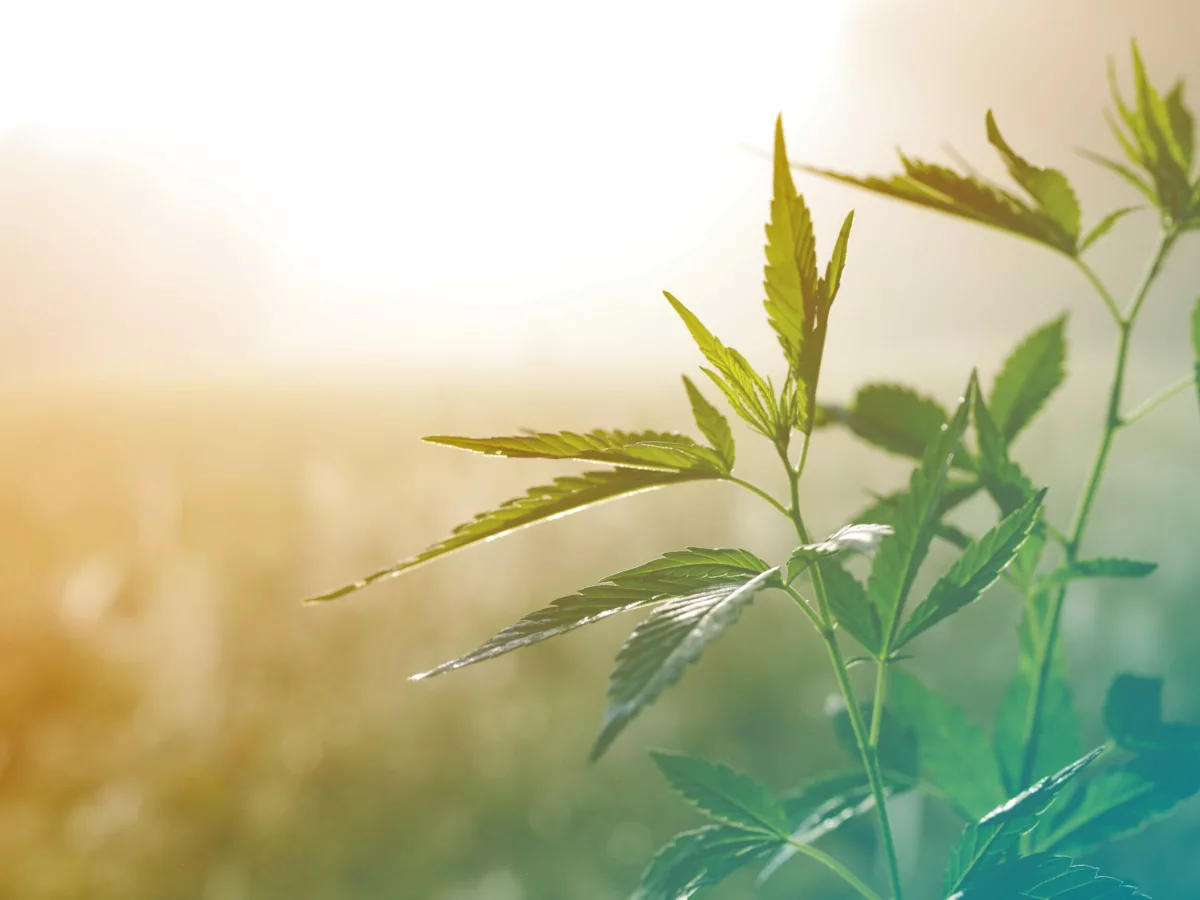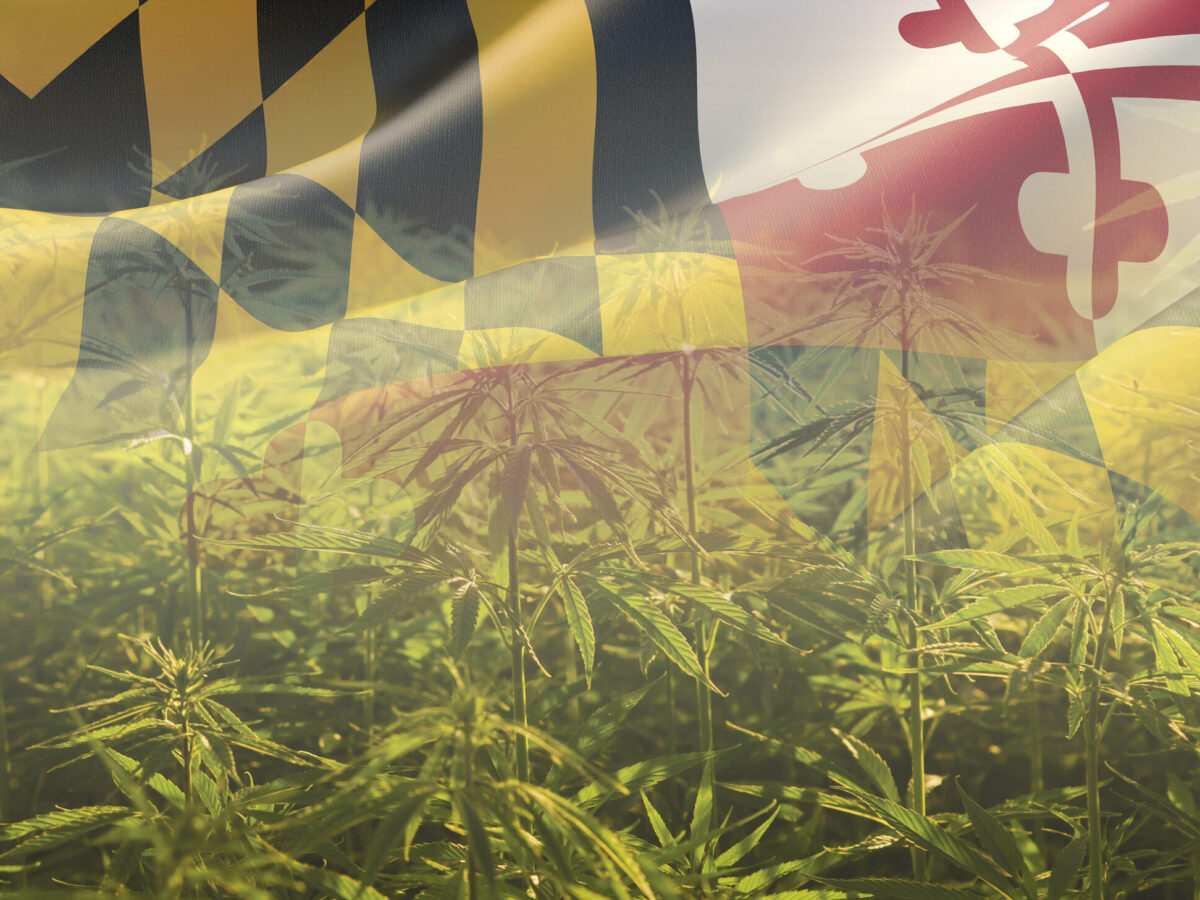When first introduced by Virginia Senator Emmett Hanger, S.B. 591 wasn’t the apocalyptic measure that some in the hemp industry now see it as.
The bill didn’t include anything about Delta-8 and hardly mentioned hemp. Initially, it mostly dealt with regulating the commonwealth’s medical cannabis industry by prohibiting the sale of weed products in candy-like shapes that could appeal to children, like fruit or dinosaurs.
“It wasn’t even on our radar. It was only for marijuana products as well and had nothing to do with hemp,” Jason Amatucci, President of the Virginia Hemp Coalition, told The Outlaw Report. “Then… this bill morphed into a monster.”
That shift began when Virginia Governor Glenn Youngkin started adding amendments to an otherwise hemp-free bill.
There was the changing of the definition of marijuana to include any substance containing more than 0.3% THC or had more than a quarter milligram per serving. (THC is the compound in weed that makes people feel high.) That broad restriction potentially loops in some non-intoxicating CBD hemp products, plus it would restrict selling those products to only those over 21 years old.
This would potentially prevent places like Vitamin Shoppes and Whole Foods across the commonwealth from selling any CBD products.
Another change –– one that has riled up advocates for criminal justice reform –– would increase the penalty for possession of more than an ounce of cannabis from a civil penalty (a $25 fine) to a misdemeanor.
“This is yet another attempt to re-active the War on Drugs under the lie of public safety,” Chelsea Higgs Wise, executive director of the non-profit Marijuana Justice, said in a statement.
But what’s gotten the most attention is the amendment that would make the much-desired (and profitable) Delta-8 products illegal in the commonwealth starting in October.
“Delta-8 has really helped the hemp industry [in Virginia] stay afloat,” says Amatucci. “And now they want to take that away.”
The bill with the governor’s amendments is now on its way back to the Virginia General Assembly, which will consider a vastly different S.B. 591 than originally conceived when it reconvenes on April 27.
“The new bill is way worse than the original bill,” says Yan Gleyzer, a hemp distributor and president of Virginia Healthy Alternatives. “If the bill does pass… there will be nothing left of the hemp industry here in Virginia.”
How did we get here?
Recent legislation, all passed by a Democratically-controlled Virginia government, provides some clues on how S.B. 591 became a bill that now threatens to burn the commonwealth’s hemp industry.
In 2019, a bill passed through the Virginia General Assembly and was signed by then-Governor Ralph Northam that allowed for the growing of hemp beyond solely for research programs. This meant growers could cultivate hemp for CBD, the non-intoxicating compound (as opposed to THC) that can be extracted from the plant. .
This law is the reason why today one can find CBD-infused products from gummies to moisturizing lotion and pet treats on retail shelves across the commonwealth.
While CBD has recently been advertised as a cure-all for illnesses like anxiety, cancer, and Alzheimer’s –– the jury is still out on how effective the substance is to treat those ailments.
But the bill supercharged the hemp industry in the commonwealth, contributing to the U.S.’s $824 million revenue from industrial hemp last year. As one proponent told the Virginia Mercury back in 2019 when the bill passed, “Prohibition is over.”
Then, two years later, Virginia became the first Southern state to legalize cannabis. This allowed residents to possess up to an ounce of marijuana and cultivate up to four plants.
“The time has come,” said House Majority Leader Charniele Herring (D-Alexandria) at the time.
But that celebration turned sour only a year later, with a Republican majority now in the House and new governor in the Richmond mansion, when an effort to create a frameworkfor legal retail cannabis sales went up in smoke.
That left the Virginia recreational weed industry in a legal gray area, with cannabis use and possession allowed but no legal means of buying or selling the substance.
The altered S.B. 591 is threatening to do a similar thing to the hemp industry, essentially taking aim at a two-year-old law that growers, producers, distributors, and sellers have already adjusted to.
Primarily, it goes after Delta-8 products, potentially making them illegal which the hemp industry has adopted as a sort of a saving grace.
Advocates for changing the law cite the “dangerous” nature of the popularity and accessibility of products with Delta-8 THC, a synthetically manufactured compound that’s extracted from the CBD in industrial hemp.
Known to some as “weed lite,” it does have psychoactive and intoxicating effects, though not to the same extent as Delta-9 THC (found in marijuana).
Delta-8 products are also, in theory, legal since they‘re derived from hemp. (The federal Farm Bill of 2018 authorized hemp production in every U.S. state.) That’s why Delta-8 can be purchased at tobacco shops, gas stations, and dedicated retail shops across the commonwealth.
Some feel Delta-8 products exist in a legal loophole. The products do produce a certain “high,” but are not currently regulated either at the state or federal level in the same manner as cannabis. With regulation largely non-existent, the market is rife with mislabeling and deceptive marketing, while lacking even the most basic quality control.
Youngkin called Delta-8 “basically marijuana” in a recent interview. A spokesperson from the governor’s office also emailed The Outlaw Report a statement reiterating his stance that the “dangerous synthetic Delta-8 should be removed from shelves.”
But others disagree, pushing an argument common among cannabis advocates that a legal market is safer and healthier than an illegal one, not to mention a good way to generate tax revenue.
Impact on business
In 2019, Wisconsin-based The Dispensary opened a location in Richmond that mostly sells Delta-8 products. The company has since opened two additional Virginia locations in Danville and Chesterville.
“We hear a lot that one of the reasons people come to us for [Delta-8 products] is so they are not having to deal with some sketchy guy or a friend of a friend,” Richmond’s General Manager Sarah Grant told The Outlaw Report. “We are a place where they can come in and they can trust the legal products that they are getting.”
If S.B. 591 were to pass as is, it would decimate the business. Grant said many worried customers and employees have asked what that would mean for the shop . Simply put, customers wouldn’t get the products they want, employees would be laid off, and the business would eventually close.
“We would lose a lot of gainfully employed, taxpaying members of society,” she said.
As echoed by others, Grant said the original bill wasn’t panic-inducing, adding that public safety is of utmost importance to The Dispensary.
While she didn’t agree with every word of S.B. 591, she understood the intent of Hanger’s initial proposal.
“I have kids. I don’t want them getting ahold of [these products] now,” she says. “I was not necessarily opposed.”
Amatucci points out that all the products sold by stores like the Dispensary are heavily taxed.
“That’s a lot of money. If they make this product harder to get for consumers, all of that [money] is going to go away,” he says. “As a [governor] who says Virginia is open for business, this is shooting himself in the foot.”
Is there a middle ground?
The Outlaw Report spoke to several hemp advocates who said they believe a better bill could be worked out that doesn’t outright ban Delta-8. They said it comes down to pretty standard regulation and an understanding of what Delta-8 actually is.
Both Amatucci and Gleyzer said the Youngkin administration demonstrated a surprising lack of understanding when approached with feedback on how to draft such a bill.
“When we were talking to them they had zero knowledge about hemp. Like, absolute zero,” Gleyzer said. “It was like talking to someone who had never heard of hemp before.”
Some remain hopeful that once lawmakers understand the implications of S.B. 591, there will be a movement to vote it down and work towards negotiating a better bill.
But what would that look like?
“Childproof packaging is the number one thing,” Gleyzer said. “Lab testing on each product… limiting 21 and over for intoxicating products.”
He also advocated for raising the THC limit on CBD products over 0.3% –– which is considered a trace amount –– so they can continue to be labeled as CBD. Labeling low-THC products as marijuana, as proposed by the governor, could mean lots of missed sales.
Gleyzer said stores like Whole Foods would likely stop selling CBD products if the bill is approved.
“I don’t see big box stores, like Whole Foods, CVS, GNC wanting to enforce the 21 and over [law],” he said. “The easiest solution for them would be to just get rid of [the products.].”
Amatucci agrees with Gleyzer: The bill is far too restrictive.
“We need to sell this like tobacco or alcohol, with a license and to those over 21,” says Amatucci. “We can have education programs on how to sell these products… and have limits on them. That’s all fine and we can work with that.”
He echoed a sentiment from the recent debate over retail cannabis sales: that taking advice from industry experts would have resulted in simple tweaks to the law that would have satisfied everyone.
“It became so convoluted,” Amatucci says. “It’s a mess.”





